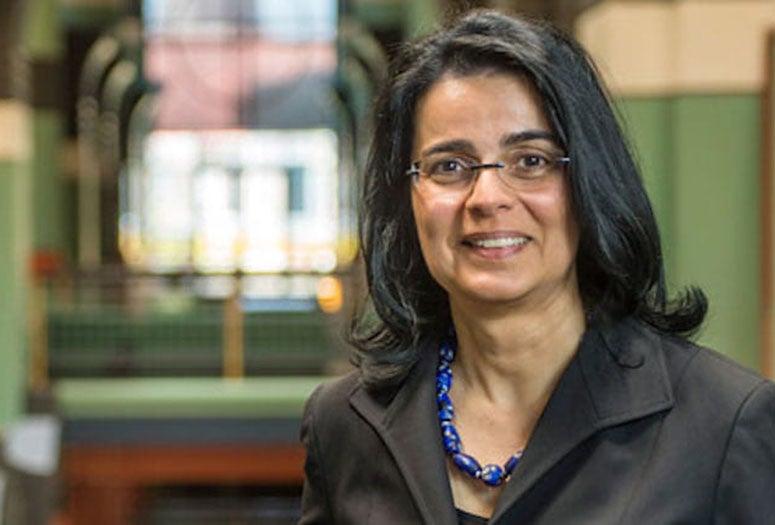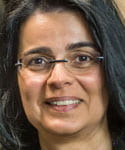By Patrick Kurp
Special to the Rice News
Rice University computer scientist Lydia Kavraki has been honored for her foundational contributions to the discipline with the 2019 ACM/AAAI Allen Newell Award.
Kavraki, the Noah Harding Professor of Computer Science, a professor of bioengineering, electrical and computer engineering and mechanical engineering and director of Rice’s Ken Kennedy Institute, was recognized for her “pioneering contributions to robotic motion planning, including the invention of randomized motion planning algorithms and probabilistic roadmaps, with applications to bioinformatics and biomedicine.”
The award is accompanied by a prize of $10,000 provided by the Association for Computing Machinery and the Association for the Advancement of Artificial Intelligence, and by individual contributions.
“This award to Lydia is the latest in a long list of awards she has received in recognition of the excellence of her work and her group’s work,” said Luay Nakhleh, the J. S. Abercrombie Professor, a professor of computer science and of biosciences and chair of Rice’s computer science department.
Kavraki has published more than 240 peer-reviewed articles and is co-author of the textbook “Principles of Robot Motion,” published by MIT Press. A highly cited 1996 paper was the first to establish a probabilistic approach to developing road maps for high-dimensional spaces, which has become one of the key techniques for motion planning for complex physical systems.
“Lydia’s research has solved problems that for several years seemed beyond reach from a computational point of view,” said Moshe Vardi, the Karen Ostrum George Distinguished Service Professor in Computational Engineering and University Professor at Rice. “She has worked on problems that range from docking the space shuttle to the orbiting space station to planning for reconfigurable robots. She is currently working with NASA on planning the motions of its Robonaut. Lydia has always sought to make her work accessible and usable.”
A native of Greece, Kavraki received her bachelor’s degree in computer science from the University of Crete and her Ph.D. from Stanford University. She joined the Rice faculty in 1997.
She has recently been recognized with BioHouston’s Women in Science Award and the Anita Borg Abie Technical Leadership Award. In 2017, Kavraki received the ACM Athena Lecturer Award. Earlier this year she received the Institute of Electrical and Electronics Engineers’ Robotics and Automation Society Pioneer Award for her fundamental contributions to robot design.
The ACM/AAAI award was established in 1993 to honor the memory of Allen Newell, a researcher in computer science and cognitive psychology at the RAND Corporation and Carnegie Mellon University’s School of Computer Science, Tepper School of Business and Department of Psychology.
– Patrick Kurp is a science writer in the George R. Brown School of Engineering.


